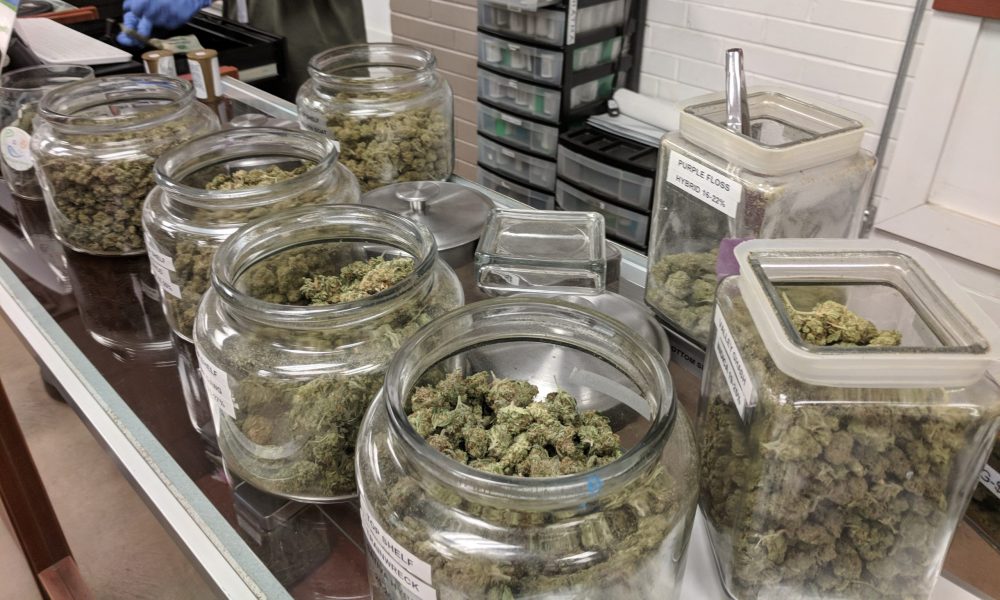Retail marijuana sales in Delaware may not start until March 2025, four months later than initially planned, a top regulator says. But officials are also considering the possibility of allowing existing medical cannabis dispensaries to start serving adult consumers sooner.
Delaware Marijuana Commissioner Robert Coupe laid out the updated legalization implementation timeline during a hearing before the legislature’s Joint Finance Committee last week.
He said that the current plan is to finalize rules for the adult-use cannabis program by July 11, start accepting license applications in September and begin approving different license types on a staggered schedule in October. Cultivation licenses could be approved beginning in November, followed by manufacturer licenses in December and retailer and testing licenses in March 2025.
Additionally, regulators plan to post draft rules on their website soon, Coupe said. He added that, with the support of the governor’s office, they are proposing to combine the state’s current Office of Medical Marijuana with the Office of the Marijuana Commissioner “so we’ll have one system in Delaware” that “will get the synergy of those extra personnel.”
“That’ll help us since we’re very small shop right now,” he told the legislature’s Joint Finance Committee.
The commissioner’s office says it is also contemplating the possibility of allowing current medical cannabis dispensaries to convert to dual licenses where they could serve patients and adult consumers. However, he cautioned that the option is “hypothetical” right now, and the earliest it could be implemented would be this fall.
Coupe said that, ideally, new recreational retailers would open “at the same time” that medical marijuana dispensaries could convert, calling it “good for fairness and the competition.”
“If we just opened those 13 [dual cannabis shops] today—if they’re providing for 17,000 patients and suddenly the market jumps to 85,000 and they can’t meet the need, what we don’t want is we don’t want medical patients to go in and the store be sold out,” he said, as first reported by Delaware Public Media. “So we need a chance to kind of ramp that up, but we believe that this process could help out.”
Meanwhile, the commissioner says the state is closely monitoring for the possibility of marijuana rescheduling under federal law. If the Drug Enforcement Administration (DEA) does go along with the U.S. Department of Health and Human Services (HHS) recommendation to move cannabis from Schedule I to Schedule III under the Controlled Substances Act (CSA), “we may see some things ease up” as it concerns barriers to banking and other financial services for the marijuana industry, he said.
As regulators move ahead with the implementation of legalization under a pair of bills that Gov. Jay Carney (D) allowed to become law without his signature last year, the Delaware House of Representatives approved a bill last month to significantly expand the state’s medical marijuana program.
—
Marijuana Moment is tracking more than 1,000 cannabis, psychedelics and drug policy bills in state legislatures and Congress this year. Patreon supporters pledging at least $25/month get access to our interactive maps, charts and hearing calendar so they don’t miss any developments.
Learn more about our marijuana bill tracker and become a supporter on Patreon to get access.
—
The bill from Rep. Ed Osienski (D) would make a series of changes to the state program, including removing limitations for patient eligibility based on a specific set of qualifying health conditions. Instead, doctors could issue marijuana recommendations for any condition they see fit.
It would also allow patients over the age of 65 to self-certify for medical cannabis access without the need for a doctor’s recommendation.
Last year, after the passage of his two legalization measures, Osienski gave advice to lawmakers in other states who are pushing for marijuana reform.
“The key was just to keep plugging away at it and see what the other states have done and see what works best for your state,” he said last May.
He also advised legislators to sit down with “affected state agencies” like the Departments of Health, Finance and Agriculture.
“We had to sit down through meeting after meeting to try to work out a lot of the issues,” he said.
Meanwhile, the Delaware Senate separately approved a resolution last March that urges the state’s congressional representatives to support legislation to end federal cannabis prohibition.
Read the full article here









